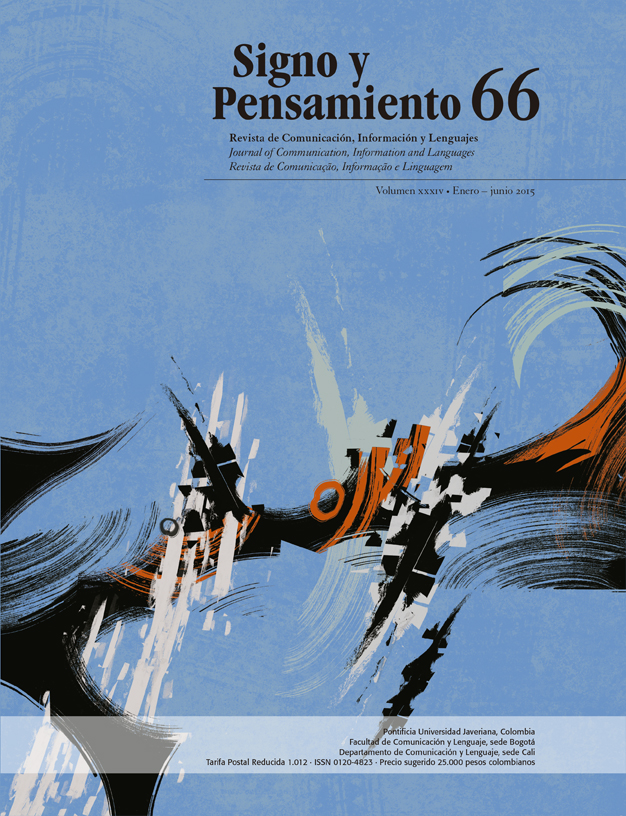Abstract
This paper attempts to present a set of reflections and questions that come from a theoretical –semiotical– exploration and an empirical experience in a disadvantaged neighborhood of the city of Córdoba-Argentina, around the possibilities of making effective the claim of the Latin American popular knowledge, promoted by certain critical epistemological positions.
The methodological perspective of this work adopts a performatical perspective in order to capture what happens in the observed situations, understood as an integrated whole that connects, time, actors and objects in a continuum of different rhythm, sound, and emotional sensitive qualities. Performance, in this way, becomes a strategy for reading other forms of expression and construction of knowledge, questioning profoundly the notion of knowledge itself from which this kind of inquiry usually starts.
Carballo Villagra, P. (2008). Una experiencia de educación popular según premisas pedagogía crítica. En Gadotti et al. (Comps.). Paulo Freire. Contribuciones para la Pedagogía (pp. 6-17). Buenos Aires: CLACSO.
Castro-Gómez, S. (2007).Decolonizar la Universidad y la Hybris del punto cero y el diálogo de saberes. En Castro-Gómez, S. y Grosfoguel, R. (Eds.). El giro decolonial (pp. 79-92). Bogotá: Siglo del Hombre Editores.
Costa, S. y Boatca, M. (2010). La sociología poscolonial. Estado del arte y perspectivas. Estudios Sociológicos, 28(83), 335-358.
De Oto, A. (2007-2008). Historias de la Teoría Crítica Postcolonial y después. Pasado Porvenir. Revista de Historia, 3(3), 86-106.
Denzin, N. (2001). The reflexive interview and a performative social science. Qualitative Research, 1, 23-46.
Denzin, N. (2009). A research act: a theoretical introduction to sociological methods. United States of America: Aldine Transaction.
Depaz Toledo, Z. (2002). Horizontes de sentido en la cultura andina. El mito y los límites del discurso racional. Comunidad (5), 1-29.
Fals Borda, O. (Comp.). (1998). Participación Popular: Retos del Futuro. Bogotá: ICFESIEPRI-COLCIENCIAS Editores.
Freire, P. (1990). La naturaleza política de la educación. Cultura, poder y liberación. Barcelona: Ediciones Paidós.
Kaplún, M. (1998). Una pedagogía de la comunicación. Madrid: Ediciones de la Torre.
Kaplún, M. (2002). El comunicador popular. La Habana: Editorial Caminos. Kusch, R. (1975) América profunda. Buenos Aires: Editorial Bonum.
Kusch, R. (1976). Geocultura del hombre americano. Buenos Aires: Editorial Fernando García Cambeiro.
Lander, E. (2000). Ciencias sociales: Saberes coloniales y eurocéntricos. En Lander, E. (Comp.). La colonialidad del saber: Eurocentrismo y ciencias sociales. Perspectivas latinoamericanas (pp. 11-40) Buenos Aires: CLACSO.
Mignolo, W. (2010). Desobediencia epistémica. Buenos Aires: Del Signo. Mignolo, W. (2013).Historias locales / diseños globales. Colonialidad, conocimientos subalternos y pensamiento fronterizo. Madrid: Akal Ediciones.
Ortecho, M. (2014). Por un intento de subversión interpretativa: Crítica a la forma occidental de producir conocimiento social y recuperación de saberes populares. Interamerican Journal of Philosophy, 5(2), 45-66.
Palermo, Z. (2010). La universidad latinoamericana en la encrucijada decolonial. Otros Logos, (1), 43-69.
Vargas Vargas, L. y Bustillos de Nuñez, G. (1990). Técnicas participativas para la Educación Popular. Santiago de Chile: Centro de Investigación y desarrollo de la Educación.
This journal is registered under a Creative Commons Attribution 4.0 International Public License. Thus, this work may be reproduced, distributed, and publicly shared in digital format, as long as the names of the authors and Pontificia Universidad Javeriana are acknowledged. Others are allowed to quote, adapt, transform, auto-archive, republish, and create based on this material, for any purpose (even commercial ones), provided the authorship is duly acknowledged, a link to the original work is provided, and it is specified if changes have been made. Pontificia Universidad Javeriana does not hold the rights of published works and the authors are solely responsible for the contents of their works; they keep the moral, intellectual, privacy, and publicity rights.
Approving the intervention of the work (review, copy-editing, translation, layout) and the following outreach, are granted through an use license and not through an assignment of rights. This means the journal and Pontificia Universidad Javeriana cannot be held responsible for any ethical malpractice by the authors. As a consequence of the protection granted by the use license, the journal is not required to publish recantations or modify information already published, unless the errata stems from the editorial management process. Publishing contents in this journal does not generate royalties for contributors.


